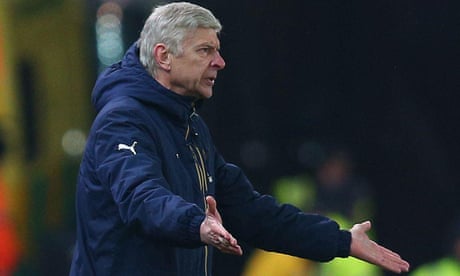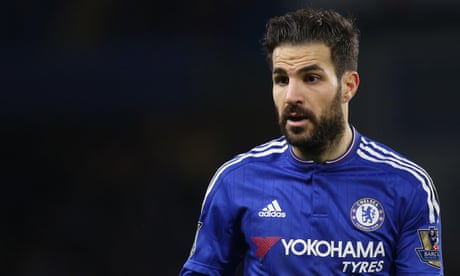Hopefully, I have your attention now, yes? Good.
That’s how good I think Mesut Özil (or Ozzul, that well known demon from the Exorcist if you prefer the Carragher variation) is. Up until recently, it has felt as though I have been in a small minority of Arsenal fans who have been watching the German and understanding what he brings to the team. For the rest, the German’s über efficient style has not quite been to their taste. Not whilst they have been watching Alexis careening around the pitch like a bumblebee on speed, sometimes running into defenders, sometimes spanking one from distance into the top corner. Or, low into the near one.
You’ve all heard and maybe even shared the criticisms. Too lazy, looks like he doesn’t care. I have heard, in the last few months, the following:
“Needs to man up a bit.”
“For some reason Özil lacks the confidence and doesn’t want to take on the responsibility despite the fact he’s undoubtedly got the skills (to shoot at goal).”
“It’s like playing with ten players when he’s on the pitch.”
Two of these criticisms in particular highlight the fact that people watch Mesut and, quite simply, don’t think he’s trying. Never mind the fact that Özil routinely finishes matches having run further than most of his team mates, with the probable exception of Aaron Ramsey.
When I think of this criticism, I always think of Johan Cruyff’s comment that if you have to run to make a tackle, you were almost certainly in the wrong position to begin with. To be clear, though I may sound in danger of contradicting myself here, I think the fact that you rarely see Özil bombing around like the aforementioned bumblebee on speed means that the German is more often than not exactly where he is supposed to be. At the hub of our attack.
Interestingly, the middle criticism, made by my uncle, that Mesut is not too fond of shooting would appear to be backed up by data I found on Squawka. Excluding blocked shots, Özil’s shooting numbers are not great, with 16 shots on goal his total for the season. Theo Walcott, with 28, Alexis with 33, Ramsey with 30 and Olivier Giroud with 46 have all taken far more shots than our midfield maestro. Yet…
And yet, Mesut Özil’s shooting accuracy, 63% (10/16), is better than any of his teammates. Okay, in Theo’s case (61%), it is only just better, but still. To me, this speaks to the fact that Mesut Özil will shoot only when he has absolutely determined that he is in the right position to do so. Not just because he has no other option, like Alexis (55%, if you’re interested) or is feeling lucky (Aaron Ramsey – 53%). Olivier Giroud’s 50% shooting accuracy is, necessarily, another story for another time.
This is further borne out, I think, by the number of chances Mesut has created when compared to the rest of his colleagues. We all know about Mesut’s 16 assists this season. This is not some kind of statistical anomaly. The man has created 83 goalscoring chances for the rest of the team. These numbers are so high that it’s not even really worth talking about who comes second to him, as it happens, Santi Cazorla. Between Cazorla, Alexis, Ramsey, Walcott and Giroud, they have created 106 chances. This leads me to the thought that, perhaps if these guys were more like Özil they might create more chances for the team – and have much better shooting accuracy.
You know, like when Mesut sold the Aston Villa defence down the Birmingham canal and gave Aaron Ramsey a tap in? Yes, that.
It seems to me that the tide has now turned decisively in Özil’s favour, particularly with the Arsenal fans. It is almost as though Mesut has been putting together the largest of jigsaw puzzles for months and it is only now that people are starting to see the picture emerging. But that’s how Özil plays the game, I suppose.
It’s also the side effect of playing in an Arsenal side shorn of two, or three key players (depending on how you see Coquelin) and guiding them to the top of table. It’s the side effect of making constant, match winning contributions, of making the difference in big games – as he has against both Manchester clubs this season. I don’t think it’s any coincidence that Arsène was talking up Mesut’s leadership qualities after the draw v Spurs. In that game, it was his efforts, his brilliance that rescued a point for us. Much as I have always loved Mesut, I’m not sure he would have dragged that game out of the fire for us two seasons back.
Now though, his form is such that he has been voted Arsenal’s player of the month three months in a row. Here at Daily Cannon Towers, although a lone voice may cry out “Petr Cech!”, the player of the month debate we used to have is no longer a debate. The man’s brilliance just obliterates all competition.
It’s been a big month for fans of a certain science fiction franchise, I imagine that the same people who went to see The Force Awakens and came away nitpicking are exactly the same kind of people who can find nothing to love in our German maestro. However, it is another sci-fi franchise springing to mind when I think of Mesut Özil. Or more to the point, a sci-fi character.
Yes, like Bullet Time Neo, I believe Mesut Özil is just realising, and reaching, the height of his powers. He is seeing things happen before they do, he sees things that nobody else does. I believe he is the One. The One to deliver us the Premier League title. Although that does see Arsène Wenger cast as Morpheus, with Alexis playing Trinity, Robin van Judas as Cypher (haha) and Mourinho as Agent Smith (too much?).
Somewhere in Europe, Anita Sambol is breathing a sigh of relief I didn’t ask her to create such a Photoshop job…
Anyway, it seems fairly obvious to me that as long as we can keep Neo, sorry, Mesut fit, then we’re going to be right in with a shout of bringing the Premier League title home this May. And if we do that…
Well, apparently, some of you will still be calling Arsène Wenger the wrong man for the job – and worse. I’m not going to go on about it, but surely the Premier League is the ultimate test for any manager in the, er, Premier League? If you win that, how the hell can you be the wrong man for the job? Think about it…
This weekend sees the quest for a hat trick of FA Cup wins begin (not bad for a club who don’t take the competition seriously) at home to Sunderland, before a midweek trip to Anfield. It’s going to be a fun old week!







/cdn0.vox-cdn.com/uploads/chorus_asset/file/5323021/ozil_first16_h.0.png)
/cdn0.vox-cdn.com/uploads/chorus_asset/file/5327157/ozil_regression_comps.0.png)